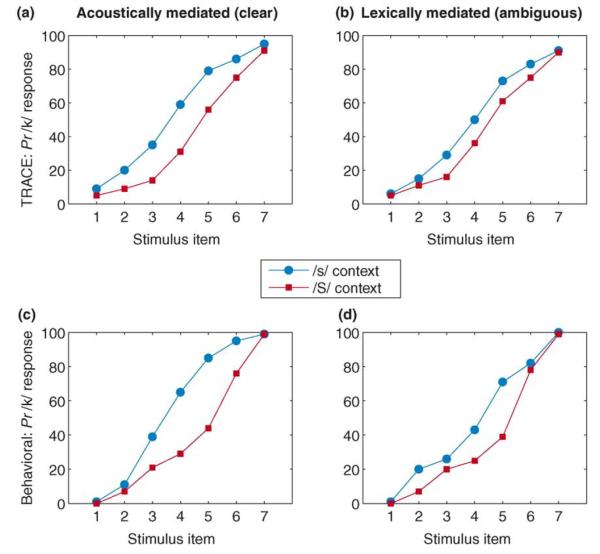Figure 2.
Acoustically and lexically mediated compensation for coarticulation. (a) and (b) show data from simulations of the TRACE model, and (c) and (d) show behavioral data from human listeners. Panels (a) and (c) show that an ambiguous stop will be identified as /k/ more often when it is preceded by a clear /s/ sound than when it is preceded by a /∫/ sound (acoustically mediated compensation for coarticulation). Panels (b) and (d) show that this effect persists (albeit more weakly) when the fricative is replaced by an ambiguous one and lexical context is manipulated. That is, a lexically defined fricative causes a shift in identification of neighboring sounds (lexically mediated compensation for coarticulation). This lexically mediated compensation for coarticulation effect requires that lexical influences act directly on phoneme processing rather than on a post-perceptual decision stage. Data replotted with permission from Ref. [18].

